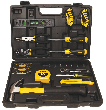What are pool heat pumps, and what are they designed to do? Why would you even want one? These are questions that you may have asked your self as you where wandering around the pool supply store. The answer to these rather simple questions is that a pool heat pump is one of the most efficient and cost effective methods available for heating your pool. A pool heat pump will simply help circulate the water in the pool, while heating it at the same time.
Before you rush out and purchase one however, there are a few questions that you need to ask yourself. The answers to these questions will help you determine which of the available models is best possible pool heat pump is for you, and if you even need one at all.
- What is the unit size? Knowing the size of your pool will help you determine the size of unit that you need. Each heat pump will work best for different size of pools. So, when you are picking out your pool heat pump, keep in mind that every pool is different, and that you choose one that is the proper size for your pool.
- How efficient is the unit? Just like with cars, each available pool heat pump is going to vary slightly when it comes to efficiency. In general, pool heat pumps are much more efficient than their cousins, the gas pool heater. Look around at the different units available, and don't be afraid to ask the professional opinion of the clerks at the pool supply store as to which particular brand, or unit within the brand, is the most efficient.
- What will the unit cost upfront? If you can find a good deal, then a pool heat pump will cost you about $1,500. However, the typical cost of one of these units will cost you between $2,000 and $5,000 depending on the unit or model that you purchase. Make sure that you choose one that you can afford.
- What is the maintenance cost? Just as with most anything, pool heat pumps will have some associated maintenance costs. On average, a pool heat pump is going to be on the lower end of the cost spectrum when compared to other pool heating options. Typically, a pool heat pump will last between five and ten years. Usually you can get a warranty that will last the entire life of the unit. The specific annual maintenance cost for a pool heat pump will be less than $500.
Author Bio
Lee Wyatt
Contributor of numerous Tips.Net articles, Lee Wyatt is quickly becoming a regular "Jack of all trades." He is currently an independent contractor specializing in writing and editing. Contact him today for all of your writing and editing needs! Click here to contact. Learn more about Lee...
Testing for Lead Paint
While everyone may know that lead based paint isn't exactly the best, do you know why testing for lead paint is so ...
Discover More
Replacing an Electrical Outlet
Replacing an outlet is one of the easier tasks that an amateur electrician can undertake. Here is how you can do this ...
Discover More
Common Garden Diseases
If you are a gardener, or even thinking of gardening, you will need to be able to identify some of the more common garden ...
Discover More
More Home Improvement Tips
Installing a Hot Tub
With the right kind of hot tub around your home, you can feel like you are in heaven. The thing is that you first need to ...
Discover More
Maintaining a Hot Tub
Hot tubs can be, and often are, wonderful things to have in the yard of your home. However, if you don't take care to ...
Discover More
Problematic Pool Water
Have you ever noticed that there are times that, no matter what you try, you just can't seem to get your pool water ...
Discover More

Comments